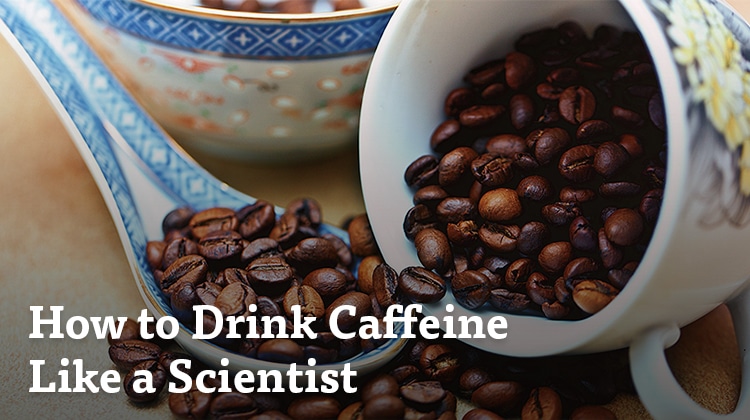We love coffee, so we decided to offer you a little wisdom about this surprisingly healthful beverage. Coffee actually boasts a longer and more diverse list of health benefits than most superfoods, which is great news for the 54% of Americans adults who consume at least one cup a day. Below you will find a rundown of the not-so-obvious ways that coffee is good — one might even say great — for your health.
Below that are some additional tips for the best way to imbibe your caffeine, no matter your preferred source beverage (we didn’t forget you, tea and soda drinkers of the world!). It turns out that a bunch of the ways we normally consume caffeine (e.g. first thing in the morning) are actually the scientifically worst ways to do so, minimizing its effectiveness and increasing the likelihood that you’ll become a bona fide caffeine addict.
We’re the discount specialists here, so it’s important to us that you are getting the biggest bang for your caffeine buck.

I. Coffee is the Workplace Super-Beverage
All the Antioxidants.
“Nothing else comes close” to providing as many antioxidants in the American diet. In terms of antioxidants per serving, coffee “easily outranks” other popular sources like tea, chocolate, and cranberries. Coffee beans are particularly rich in disease-combatting quinines, which actually become more potent after roasting — dark roast fans rejoice!
Technically: Dates trump coffee for antioxidants per serving, but we thought it’d be easier to write a piece about why that drink you love is really awesome, rather than try to convince you to start eating dates on the daily.
Stress-Free Scent.
The simple aroma of coffee is shown to reduce stress stemming from sleep deprivation. An international group of scientists linked exposure to the scent off coffee with the boosted expression of genes and brain proteins that protect nerve cells from stress-related damage. This is a big one considering that 84% of Americans report under sleeping at least once a week.
Best for Your Brain.
People who consume 3-5 cups of coffee a day in adulthood are observed with a 65% decreased risk of developing dementia or Alzheimer’s disease. Coffee may decrease risk of Parkinson’s disease, and now this recent study finds that 2-4 cups of coffee a day can reduce movement-related symptoms in Parkinson’s patients.
Tea drinkers: There is some scientific evidence to suggest that tea has similarly favorable effects against cognitive decline, but the results are less consistent and less pronounced.
Your Liver Loves It.
A 22-year longitudinal study found that the risk of developing alcoholic liver cirrhosis decreased by 22% with each cup of coffee subjects drank per day. 1-4 daily cups of coffee are also demonstrated — although with less pronounced results — to help prevent other types of cirrhosis and non-alcoholic fatty liver disease (NAFLD).
10% Happier.
Coffee fanatics (think 4 cups a day) are 10% less likely to be depressed than those who don’t drink coffee. This finding holds true for both caffeinated and decaffeinated coffee. Other studies suggest similar mood boosting effects for a more moderate 2-3 cups.
Take note: Sugary beverages — particularly soft drinks — have a higher risk of depression. For the best coffee-induced mood boost, we recommend drinking it unsweetened. (Your cavity-free teeth will be happier too!)

II. Don’t Drink Your Caffeine Like A Rookie
Cortisol Control.
If you’re like most of us, you probably have your first (or second or third) caffeinated beverage within an hour of waking up. This is basically the worst possible time to drink your caffeine. Our bodies run on a 24-hour hormonal cycle called the circadian clock. In the morning, our bodies to naturally release cortisol, a hormone that makes us feel alert and awake. If you typically wake up between 6am and 8am, peak cortisol production lasts until about 9am.
Don’t drink caffeine during peak cortisol production.
Cortisol not only reduces the effects of caffeine, but also spurs your body to build up a caffeine tolerance. The more often you consume caffeine during peak cortisol production, the more likely you are to become dependent on caffeine just to feel awake. So when should you drink it? Science says between 9:30am – 11am and 1:30pm – 5pm.
Slow and Steady.
Research suggests that small, frequent doses are the most effective way to consume caffeine. Caffeine peaks in the body between 30 and 60 minutes after consumption. Harvard Medical School researchers found that an hourly dose of 25-100mg with a daily maximum intake of 400mg is the optimal method for maximizing caffeine’s stimulant effects without experiencing the dreaded 3pm crash. (For reference: one cup of coffee typically contains about 100mg of caffeine.)
